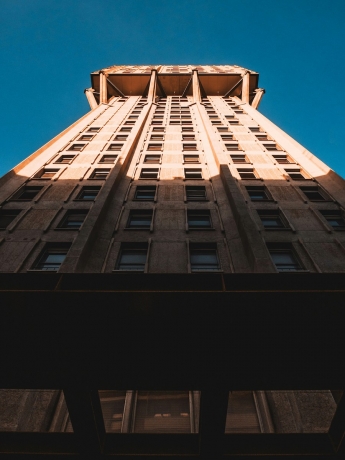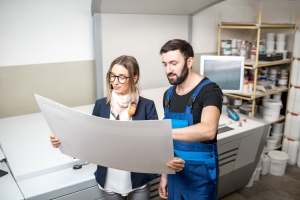Property management systems (PMS) are crucial tools that help streamline the day-to-day operations of property managers, landlords, and tenants. These systems provide a variety of features that improve efficiency, communication, and overall experience for end users. Whether it's for managing rental properties, tracking payments, or maintaining maintenance schedules, a good PMS can significantly benefit all parties involved. Here's how property management systems work for the end user:
1. Streamlined Rent Collection and Payment Processing
For tenants, property management systems simplify rent collection and payment processing. PMS platforms often include:
- Online Payment Options: Tenants can make payments easily through secure online portals, eliminating the need for physical checks or in-person payments.
- Automated Payment Reminders: The system sends automated reminders before the due date, reducing the chances of late payments.
- Receipt Generation: Tenants receive instant receipts for payments, which are stored and accessible through the system.
This feature makes rent payment easier for tenants and ensures landlords receive payments on time without manual intervention.
2. Maintenance and Repair Requests
PMS allows tenants to report maintenance issues directly through the platform. Here's how it works for them:
- Easy Reporting: Tenants can submit maintenance requests online, often with an option to include images or detailed descriptions of the issue.
- Tracking and Updates: Tenants can track the status of their requests in real-time, knowing when the request is received, when a technician is dispatched, and when the issue is resolved.
- Faster Response Times: Property managers can quickly prioritize and delegate maintenance requests, leading to faster resolutions and enhanced tenant satisfaction.
This streamlined process helps reduce downtime and ensures that tenants' concerns are addressed promptly.
3. Transparent Lease Management
Property management systems help tenants manage their lease agreements more effectively:
- Access to Lease Documents: Tenants can view and download their lease agreements and any amendments directly from the system, ensuring they have easy access to important documents.
- Lease Renewal Reminders: The system sends reminders about upcoming lease renewal dates, helping tenants avoid missing deadlines or being caught off guard.
- Clear Terms and Conditions: Information about rent due dates, security deposits, and any other obligations is stored in the system, offering transparency and clarity.
This creates a more organized and accessible way for tenants to manage their leases.
4. Communication and Notifications
Effective communication is one of the core benefits of property management systems:
- Direct Messaging: Tenants can communicate directly with property managers or landlords within the system, helping to reduce misunderstandings and delays.
- Push Notifications: Tenants receive important notifications such as rent due dates, upcoming inspections, or system updates.
- Community Engagement: For larger properties or complexes, tenants may use the system to engage with the community, receive community updates, or access building amenities.
This centralized communication platform ensures that both tenants and property managers are always in the loop.
5. Tenant Screening and Onboarding
From a property manager's perspective, the PMS facilitates a smooth process for screening and onboarding new tenants. For tenants, the system offers:
- Quick Application Process: Tenants can apply for a property online, providing their personal and financial details, references, and rental history in a streamlined application form.
- Background Checks: Some PMS platforms integrate with screening services to automatically run credit checks, background checks, and employment verification, speeding up the decision-making process.
- Instant Lease Signing: Once accepted, tenants can sign leases electronically, eliminating the need for physical documents and appointments.
This efficient and paperless approach saves time for both landlords and prospective tenants.
6. Financial and Accounting Transparency
For tenants, a property management system can provide a transparent view of their financial obligations and history:
- Access to Statements: Tenants can easily access their payment history, including past rent payments, fees, and any other charges.
- Automated Billing: Tenants receive automated, itemized billing statements, detailing their rent, utilities, and other associated costs, ensuring that they know exactly what they owe.
- Security Deposit Tracking: The system can track the status of security deposits and any deductions at the end of the lease term, reducing disputes over refunding.
This transparency helps build trust between tenants and property managers while simplifying financial record-keeping.
7. Customizable Property Features
A good PMS is flexible enough to cater to different types of properties and tenants. It may offer:
- Customizable Rent Payment Options: Property managers can set different rent amounts based on lease terms, property type, or tenant agreements.
- Custom Alerts: Property managers can configure the system to send custom alerts about anything relevant to the tenant or property (e.g., HVAC maintenance, pest control, inspections).
- Flexible Amenity Management: For properties with shared amenities like pools, gyms, or parking, tenants can book or reserve these amenities directly through the system.
This flexibility allows property managers to cater to the unique needs of their tenants and properties.
8. Data Analytics and Reporting
Property managers can use the system to generate comprehensive reports that benefit both the property owner and the tenants:
- Financial Reports: Property managers can generate reports detailing income, expenses, overdue payments, and occupancy rates, helping them keep track of their finances.
- Tenant Feedback and Satisfaction: Some systems offer feedback features where tenants can rate their experience, allowing property managers to identify areas for improvement.
- Operational Insights: Property managers can analyze trends in rent payments, maintenance requests, or leasing activity to make better decisions about property management.
This data-driven approach helps optimize property management operations, which in turn benefits tenants through better service.
9. Mobile App Accessibility
Many property management systems offer mobile apps, allowing tenants to:
- Make Payments on the Go: Tenants can pay rent, submit maintenance requests, and communicate with property managers directly from their smartphones.
- Stay Up-to-Date: Mobile apps send push notifications and updates about important events, reminders, or requests.
- Easy Access to Information: Tenants can view lease documents, payment history, or important building information, all from their mobile devices.
Mobile app accessibility adds a level of convenience that enhances the user experience.
Conclusion
Property management systems (PMS) are a game-changer for both property managers and tenants. For tenants, these systems provide an easy, transparent, and efficient way to manage rental payments, request maintenance, review lease documents, and communicate with property managers. These systems not only streamline daily tasks but also improve the overall living experience by increasing transparency, reducing administrative burdens, and enhancing communication. By utilizing a property management system, tenants and landlords can work together more efficiently, leading to a smoother and more successful rental experience.






